News
Pediatric Neurologist Urges Immediate Government Action for Autism Care in Nigeria
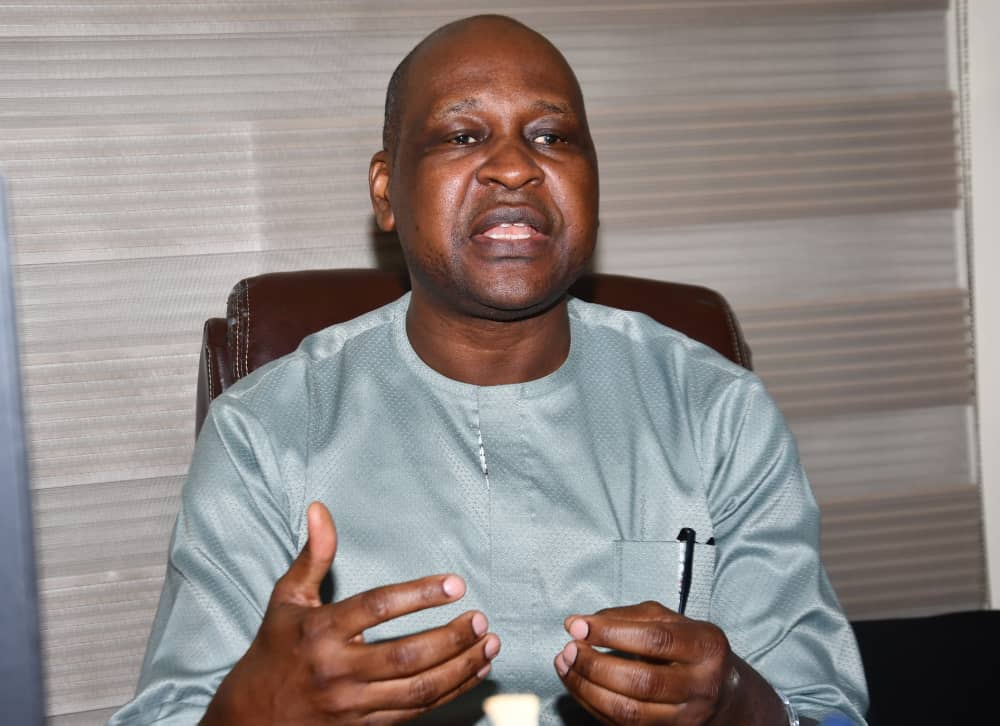
By Lami Patrick
A leading pediatric neurologist, Dr. Denis Shettima, has called for urgent government intervention to address the severe lack of care and support for children with autism spectrum disorder (ASD) in Nigeria.
In an interview with Special Needs News in Abuja, Dr. Shettima, a consultant at the National Hospital, warned that Nigeria is woefully unprepared to meet the growing needs of individuals with autism. He emphasized the critical gaps in specialized care, infrastructure, and government support, urging systemic reforms to improve the lives of families affected by the condition.”Autism care in Nigeria is significantly underdeveloped, and the lack of government action only worsens the situation,” Dr. Shettima stated. “Families are struggling, and the healthcare system is simply not equipped to provide the necessary support.”He highlighted deep-rooted cultural misconceptions about neurological conditions, including autism and seizures, which are often misinterpreted or stigmatized in many parts of the country. In some communities, such conditions are still seen as spiritual afflictions, further complicating efforts to provide appropriate care. “The challenge is twofold,” Dr. Shettima explained. “On one hand, cultural beliefs misinterpret these conditions, and on the other, we have a healthcare system that lacks the capacity to deliver the care that is needed. “One of the most pressing concerns, according to Dr. Shettima, is the acute shortage of trained professionals in critical areas such as speech and language pathology, occupational therapy, and behavioral analysis. “We are seeing a rise in autism diagnoses, but the number of qualified professionals remains grossly inadequate,” he said. “Families who can afford it often seek treatment abroad, but for the vast majority, that is not an option. This leaves countless children without access to the care they need. “While awareness of autism has grown in recent years, practical solutions remain scarce. Schools are ill-equipped to provide tailored education for children with autism, and parents frequently struggle to find the information and support necessary to care for their children. Dr. Shettima stressed the need for immediate government involvement, calling for substantial investments in special needs education, healthcare infrastructure, and professional training. “The government must take a proactive role in ensuring that children with autism and their families are not left behind. This includes funding for training programs, establishing more specialized schools, and supporting public awareness campaigns to dispel harmful myths about autism. “His call to action highlights the widening gap between increasing autism diagnoses and the availability of practical, on-the-ground solutions. “Awareness is important, but we need more than that. We need real investments in services, facilities, and personnel to provide the care these children deserve,” Dr. Shettima concluded. As autism cases continue to rise in Nigeria, Dr. Shettima’s message is clear: the country cannot afford to fall behind in providing the necessary care and support. With decisive government action and investment, there is hope that Nigeria could build a future where children with autism receive the care they need. Without it, families will continue to face an uphill battle in finding adequate resources and support within the country.
News
Activists confess receiving N500m Naira to blackmail Tinubu’s Minister Matawalle, beg for forgiveness
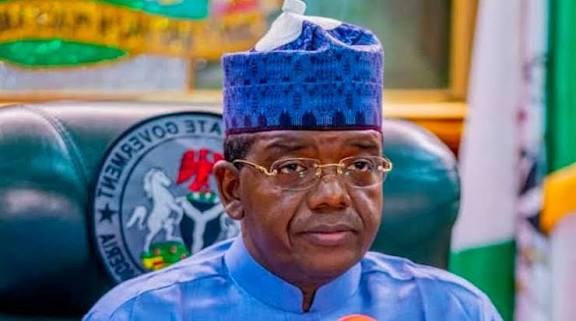
Five civil society activists and media operatives on have openly confessed to being part of a N500 million coordinated blackmail campaign against the Minister of State for Defence, Dr. Bello Mohammed Matawalle, and tendered an unreserved public apology to him.
The activists, led by Comrade Aryan Abdul Kareem, made the shocking revelation at a press conference in Gusau, the Zamfara State capital.
Speaking on behalf of Comrade Olumu Lucky, Comrade Olukayode Williams, Comrade John Osumbor Mark, and Engineer Bashir Muhammad, Kareem disclosed that the entire operation was sponsored and supervised by the administration of Governor Dauda Lawal Dare through his Spokesperson, Sulaiman Bala Idris.
According to the group, Sulaiman Bala Idris personally convened several secret meetings where they were briefed, handed instructions, and provided with funds.
The campaign, they said, cost “above five hundred million naira” and involved recruiting social media influencers, bloggers, political commentators, conventional media houses, and prominent Zamfara politicians including Senator Kabiru Marafa and Sani Abdullahi Shinkafi.
“We were part of that machinery. We accepted money and roles to circulate damaging and false narratives against Dr. Bello Matawalle even though we knew they were lies. We chose financial inducement over conscience,” Kareem admitted.
The activists said their actions caused “serious emotional pain, reputational damage and distress” to the Minister, his family, and supporters, adding that after deep reflection, they decided to come clean.
“Today, we tender our unreserved apology to His Excellency, Dr. Bello Mohammed Matawalle, and to every Nigerian who was misled by the falsehood we helped spread. We beg for his forgiveness and the forgiveness of the public. This apology is born out of genuine remorse,” the statement read.
The group further declared readiness to face any legal or moral consequences, stating that they possess “documentary evidence” of every transaction and meeting, including with Governor Lawal’s Spokesperson.
“We are ready to submit all the evidence and cooperate fully with the EFCC, DSS, police or any competent authority that wishes to investigate this matter,” they affirmed.
While urging other participants in the alleged plot to also confess, the activists said their decision was aimed at cleansing their conscience and helping to enthrone truth and accountability in Nigerian politics.
News
Security Agencies Uncover Plot to Stage Protest Against President Tinubu, NSA Ribadu
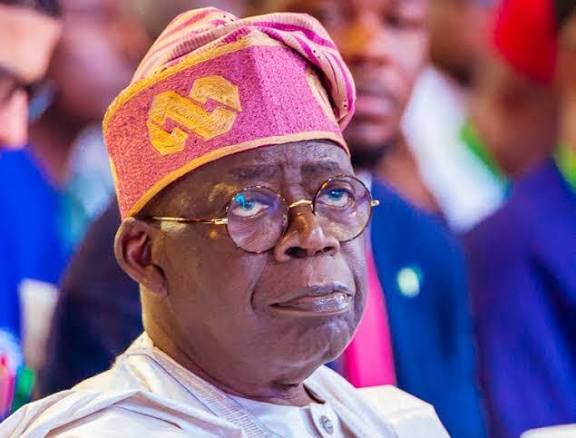
Nigeria’s security agencies have reportedly uncovered a plan by some opposition politicians to organise protests in Sokoto and other northern states against President Bola Tinubu and National Security Adviser Nuhu Ribadu.
Fresh intelligence reports made available to journalists on Friday show that former Senator Kabiru Marafa is the main arrowhead of the plot.
The group is allegedly working to discredit NSA Nuhu Ribadu and the Minister of State for Defence, Bello Matawalle, by falsely linking them to bandit groups and using a Sokoto-based militia to trigger violent protests.
Sources say the Zamfara State Government, led by Governor Dauda Lawal, is strongly backing the plan and providing funding, determined to paint the federal security team as incompetent and force the removal of both Ribadu and Matawalle.
Security operatives detected the scheme this week, monitored several planning meetings in Gusau and Abuja, blocked funding channels, and quietly disrupted the operation.
No arrests have been made, but all the key figures are now under close surveillance.
The key figures are now being monitored by security agencies to track their key sources of funding.
News
Security Agencies Uncover Plot to Stage Protest Against President Tinubu, NSA Ribadu

Nigeria’s security agencies have reportedly uncovered a plan by some opposition politicians to organise protests in Sokoto and other northern states against President Bola Tinubu and National Security Adviser Nuhu Ribadu.
Fresh intelligence reports made available to journalists on Friday show that former Senator Kabiru Marafa is the main arrowhead of the plot.
The group is allegedly working to discredit NSA Nuhu Ribadu and the Minister of State for Defence, Bello Matawalle, by falsely linking them to bandit groups and using a Sokoto-based militia to trigger violent protests.
Sources say the Zamfara State Government, led by Governor Dauda Lawal, is strongly backing the plan and providing funding, determined to paint the federal security team as incompetent and force the removal of both Ribadu and Matawalle.
Security operatives detected the scheme this week, monitored several planning meetings in Gusau and Abuja, blocked funding channels, and quietly disrupted the operation.
No arrests have been made, but all the key figures are now under close surveillance.
The key figures are now being monitored by security agencies to track their key sources of funding.
-

 News3 months ago
News3 months agoCSOs fault DAPPMAN’s ₦75 per litre coastal freight cost demand
-

 Uncategorized1 month ago
Uncategorized1 month agoParacetamol Use in Pregnancy Doesn’t Cause Autism, New Study Confirms
-
Uncategorized3 months ago
Consumer Forum Urges FG, DSS to Investigate Desperate Efforts by PENGASSAN to Shut Down Dangote Refinery
-

 News3 weeks ago
News3 weeks agoBreaking: FBNQUEST: Nestoil and Neconde are not under any receivership
-

 News3 months ago
News3 months agoCSOs To Tinubu: Hold DAPPMAN, Labour Unions Responsible For Breakdown Of Law, Order
-
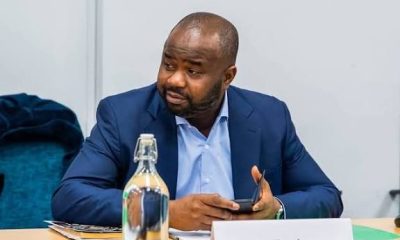
 News1 month ago
News1 month agoCoalition Backtracks, Apologises To FIRS Chairman Adedeji Over False Allegations
-
News1 month ago
NGO Empowers 150 Girls with Disabilities in FCT to Promote Inclusive Education
-
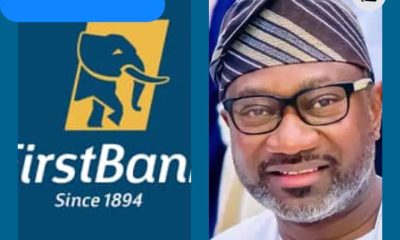
 News3 weeks ago
News3 weeks agoExposed: Mr Femi Otedola, accused of Aggressive Banking Gangsterism



